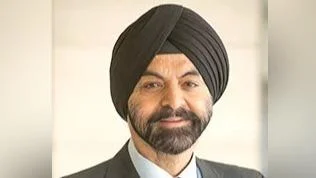Professor Phat Phanna, a prominent figure in Cambodian higher education, is making strides through the Higher Education Improvement Project (HEIP). This initiative, backed by a $90-million grant from the World Bank, aims to enhance the quality of higher education and research in Cambodia. Among its achievements are 161 new or renovated science laboratories, grants for 53 research projects, revised curricula for bachelor's and master's programs, and advanced degrees for 89 faculty members.
Prof. Phanna's work includes innovations like a "nethouse" at the Royal University of Phnom Penh that reduces pesticide use by keeping insects away from crops. Her efforts are part of broader HEIP-funded projects that include a plant tissue culture laboratory and plant breeding facilities. "Having a well-equipped facility like this lab is an absolute necessity for advancing scientific research," she notes.
Her focus on diversifying Cambodia's agriculture led her to explore alternative crops such as seedless watermelons. Supported by a $32,000 HEIP grant, her research seeks to provide farmers with additional income streams by growing watermelons between rice harvests. Prof. Phanna emphasizes the importance of diversification: "A country cannot succeed in development by relying on just a single sector."
The impact of HEIP extends beyond individual researchers like Prof. Phanna. His Excellency Sok Khorn, Rector at the National University of Battambang (NUBB), highlights how HEIP has bolstered academic offerings and infrastructure across multiple universities in Cambodia. The program has facilitated upskilling training for university staff and aligned curricula with Outcome-Based Education models.
Dr. Morm Sophany also benefited from HEIP support, earning his PhD in Animal Science from Ubon Ratchathani University in Thailand and advancing to Vice Dean at NUBB. He underscores the long-term benefits of prioritizing human resources development through degree upgrades.
Since its inception in 2018, HEIP has supported various innovations such as smart irrigation controllers and electrochemical sensors while investing $5 million in e-learning during the COVID-19 pandemic to benefit nearly three million students.

